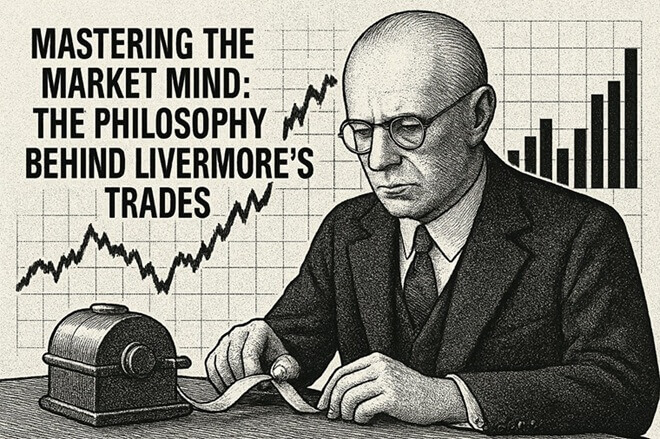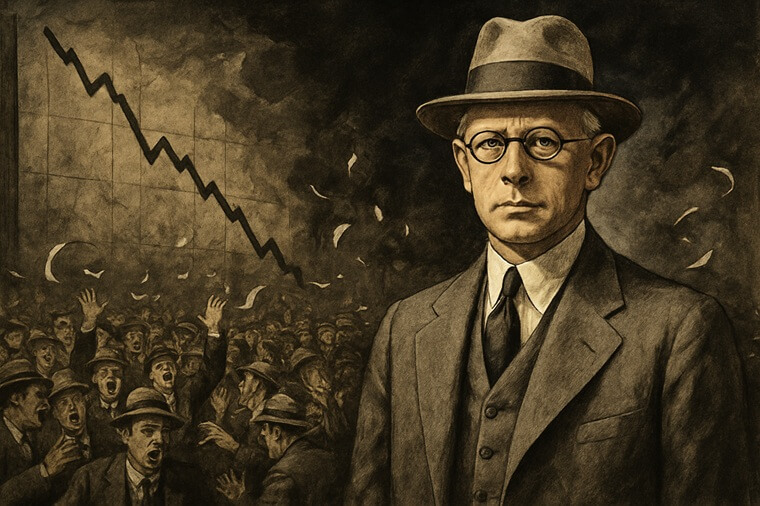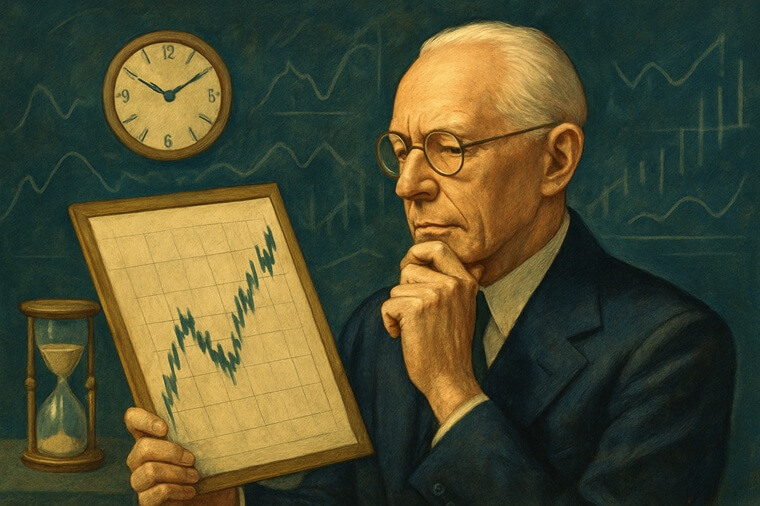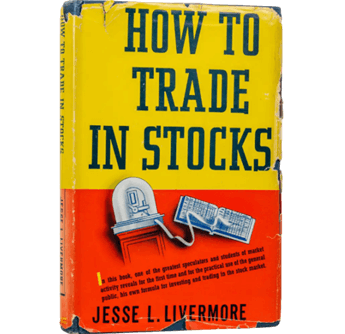
Jesse Lauriston Livermore's journey began humbly in the late 19th century. Born in 1877 in Massachusetts, he exhibited a fascination with numbers and markets from an early age. At just 14 years old, Livermore left school to take a job at a Boston brokerage, where he began his apprenticeship by manually quoting stock prices. This early exposure ignited his passion for trading.
Livermore's first trades were modest, but he quickly discovered an uncanny ability to anticipate market movements. However, his path was not without setbacks. He experienced significant losses early on, teaching him harsh lessons about the risks of emotional decision-making and the necessity of discipline. These formative experiences laid the foundation for his lifelong commitment to understanding market psychology and honing his trading methods.
Mastering the Market Mind: The Philosophy Behind Livermore's Trades

At the core of Livermore's approach was the belief that successful trading depended on following the market's trend rather than attempting to predict it. He championed a systematic style focused on "reading the tape," analysing price action, and interpreting volume to gauge market sentiment.
A key element of his philosophy was the ruthless management of losses. Livermore famously asserted the importance of cutting losses quickly to preserve capital, coining the mantra, "Lose your losses quickly." Conversely, he stressed the virtue of letting profitable trades run to maximise gains.
Risk management was paramount in Livermore's strategy. He carefully controlled position sizes to avoid overexposure, understanding that preservation of capital was crucial for long-term success. Patience and discipline were virtues he continuously advocated — waiting for the market to confirm a trend before committing substantial capital.
Market psychology intrigued Livermore deeply. He believed that the market was driven by the collective emotions of its participants — fear, greed, hope, and despair — and that recognising these emotions was key to anticipating price movements.
Riding the Waves: Remarkable Triumphs and Tumultuous Fortunes
Jesse Livermore's career was marked by astonishing highs. Throughout the early 20th century, he made and lost several fortunes, earning the nickname "Boy Plunger" for his aggressive speculations.
Perhaps his most celebrated achievement came during the panic of 1907. when he amassed a fortune by short-selling stocks at a time when most investors were caught off guard by the market turmoil.
However, it was the 1929 Wall Street Crash that solidified his legend. Livermore was one of the few traders who anticipated the catastrophic market collapse. Through meticulous analysis and a steely nerve, he shorted the market extensively, reportedly earning upwards of $100 million in today's terms — an astronomical sum for the period.
Despite these successes, Livermore's fortunes fluctuated wildly. His story is also one of dramatic losses, bankruptcy, and personal struggles, which serve as a reminder of the volatile nature of speculative trading.
The Crash Prophet: How Livermore Called the 1929 Market Meltdown

The Wall Street Crash of 1929 stands as the defining moment in Livermore's career. In the years preceding the crash, Livermore observed troubling signs — inflated stock prices, rampant speculation, and a fragile economic environment.
Rather than following the herd, Livermore maintained a cautious stance, building short positions gradually as the market showed weakness. His strategy was methodical: he avoided the noise of market hype, focusing instead on price action and volume patterns that suggested a downturn.
When the market finally plummeted in October 1929. Livermore's short positions paid off spectacularly. His ability to stay calm and execute his plan amid widespread panic demonstrated not only technical skill but extraordinary psychological resilience.
This trade remains one of the most iconic examples of market timing and risk management in history and continues to be studied by traders seeking to understand how to navigate extreme market conditions.
Words of Wisdom: Timeless Quotes from a Trading Titan
Jesse Livermore's insights endure through his memorable sayings, which encapsulate his trading wisdom:
"The game of speculation is the most uniformly fascinating game in the world. But it is not a game for the stupid, the mentally lazy, the man of inferior emotional balance, or the get-rich-quick adventurer."
A caution about the mental demands of trading.
Emphasising the importance of focusing on price action rather than overanalysis.
A reminder that patience is crucial.
Highlighting the value of waiting for the right opportunity.
These quotes reflect Livermore's pragmatic approach and his deep understanding of the trader's mindset.
Legacy Beyond the Ledger: Lessons from Livermore's Life and Career

Jesse Livermore's life and career present a compelling study of brilliance and vulnerability in the volatile world of trading. His pioneering techniques, investment philosophy, and psychological insights remain profoundly relevant today. While his extraordinary successes demonstrate the heights that can be reached through discipline and insight, his personal challenges and financial setbacks offer sobering lessons about the risks inherent in speculative markets.
For modern traders, Livermore's legacy is a treasure trove of knowledge — a reminder that beyond charts and numbers, trading is ultimately a test of patience, emotional control, and respect for the market's unpredictable nature.
Disclaimer: This material is for general information purposes only and is not intended as (and should not be considered to be) financial, investment or other advice on which reliance should be placed. No opinion given in the material constitutes a recommendation by EBC or the author that any particular investment, security, transaction or investment strategy is suitable for any specific person.
















